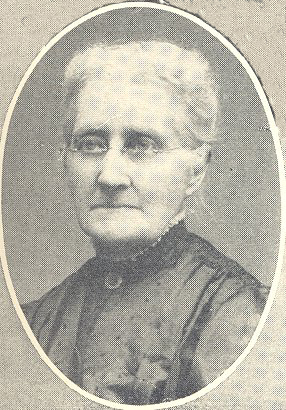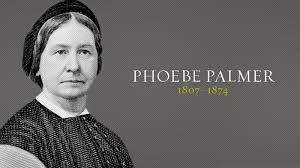Women, in their devotion to God’s cause over the world, have never been deterred by any form of heathenism. With cultured intellects, womanly tenderness, and spiritual devotion they have gone into unhealthy climates, suffered privations, isolation, and even death at the hands of those for whom they labored. (From “Eminent Missionary Women” by Annie Ryder Gracey, p. 167).
For the last few months we’ve looked at the stories of 19th Century women who took the Gospel to the lost, especially to the poor and marginalized in America and overseas. For the most part these women did not seek to “preach” or be in leadership positions in established churches. They merely sought opportunities to serve Jesus by serving others. These were selfless, courageous women.
By the end of the nineteenth century women were going to Asia, Africa, and other  third world countries even as single women missionaries. The need was great and many women such as Dr. Clara Swain, Melinda Rankin, Hannah Mullens, and Fanny Jane Butler served overseas as missionaries.
third world countries even as single women missionaries. The need was great and many women such as Dr. Clara Swain, Melinda Rankin, Hannah Mullens, and Fanny Jane Butler served overseas as missionaries.
Women also took advantage of the opportunities now open to them to evangelize in the United States and Europe. They opened religious training schools to reach out to the poor and the homeless. They built rescue homes and rescue missions. There were reform movements going on that improved the lives of women who were trapped into poverty, prostitution, or alcoholism. Women built colleges and hospitals. Women entered schools to get the training they needed to join in the great missionary enterprise.
The turn of the nineteenth to the twentieth century has been called “The Progressive Era” (roughly 1890-1920). This was a time of transition for the Church. This meant that there would be changes in the way that women could be involved in Kingdom work as well.
Many would still seek to spread the Gospel as Evangelists, not “preachers”. One might wonder what the difference is – it is simply that “preachers” were seen as male leaders of established churches. Women did not seek these positions since the Bible seemed to be clear about the authority of men in churches. Outside of churches, both women and men have served as evangelists and missionaries.
All Christians, male and female, are called to witness for Jesus. Most women will be active in their homes educating their children and working in their neighborhoods. This has been a primary way for women to serve the Lord.
Some women receive a special call to witness outside of the home. It is not the purpose of this blog post to debate whether or not women should be allowed to work outside of the home. Readers who have followed this blog will see that there are over 60 posts on women who are named in the Bible who followed a call from God. There are thousands more women in history who have served outside of the home. I pray that our fellow believers who limit women in ministry will see that they are limiting God’s work in His Kingdom. God chooses to call women into service for Him.
 Phoebe Palmer, Jennie Fowler Willing, Frances Willard, Evangeline Booth and many others accomplished great things with the organizations they founded that would serve to alleviate the suffering of the poor. Their primary motivation was always to take the Gospel into every part of the culture. They were Kingdom workers.
Phoebe Palmer, Jennie Fowler Willing, Frances Willard, Evangeline Booth and many others accomplished great things with the organizations they founded that would serve to alleviate the suffering of the poor. Their primary motivation was always to take the Gospel into every part of the culture. They were Kingdom workers.
During the Progressive Era women did not seek leadership positions in mainline churches. Most women accepted society’s place for them. In churches, women were happy to fill any positions given to them. Women did the work of nurturers, caring for the poor and giving relief to those in need.
But outside of the mainline churches it was a different story.
What if God chose to work outside of the mainline established churches? What if the established churches had left “their first love” (Revelation 2:4) and were in effect “dead churches”? Liberal theologies had been rampant in the major seminaries for decades. German “higher criticism” and other errant theologies were creeping into the pulpits across the land. The people had grown cold. Men in the seminaries were paying more attention to doctrine than anything else and unfortunately many were imbibing the new liberal theologies.
The Holiness Movement was a reaction against complacency and sterility. The Holiness Movement, initiated by Phoebe Palmer and others during the nineteenth century was not able to make headway in the mainline denominations. This was in part a reaction against the extremes in the feminist movement. It also went against the status quo and the entrenched system in the established churches. The leaders of the mainline denominations did not want to accept anything new especially if it went against their cherished doctrines. In their view a new type of theology based on “emotions” did not fit with their intellectualism.
The Holiness Movement, more like the Charismatic movement that would occur a century later, spread across all denominations. As churches began to emphasize the work of the Holy Spirit and spiritual gifts the way for female ministry was opened. If nothing else, women could take the true Gospel to the people, making up for the unbiblical preaching going on in the mainline denominations.
In the next few months we will look at the stories of many women who would answer God’s call on their lives and serve in new ways. Their view of why it is proper for women to serve as evangelists can be summed up by Seth Rees, president of the Pilgrim Holiness Church founded in 1897.
Nothing but jealousy, prejudice, bigotry, and a stingy love for bossing in men have prevented woman’s public recognition by the church. No church that is acquainted with the Holy Ghost will object to the public ministry of women. We know of scores of women who can preach the gospel with a clearness, a power, and an efficiency seldom equaled by men. Sisters, let the Holy Ghost fill, call and anoint you to preach the glorious Gospel of our Lord.
In other words, in I Corinthians 12 and other places where the gifts of the Spirit are listed, there is no gender requirement attached. It took centuries for the time to be right for women to serve along side of men without being seen as revolutionaries. Since the late nineteenth and early twentieth century many women would lose their fear of standing before crowds and begin preaching in the power of the Holy Spirit.
In the second half of the twentieth century women would begin to work in the mainline denominations and other para-church organizations. We will save those stories for later. In the next few months we will cover the Progressive Era – women who ministered in the late nineteenth and early twentieth century.

